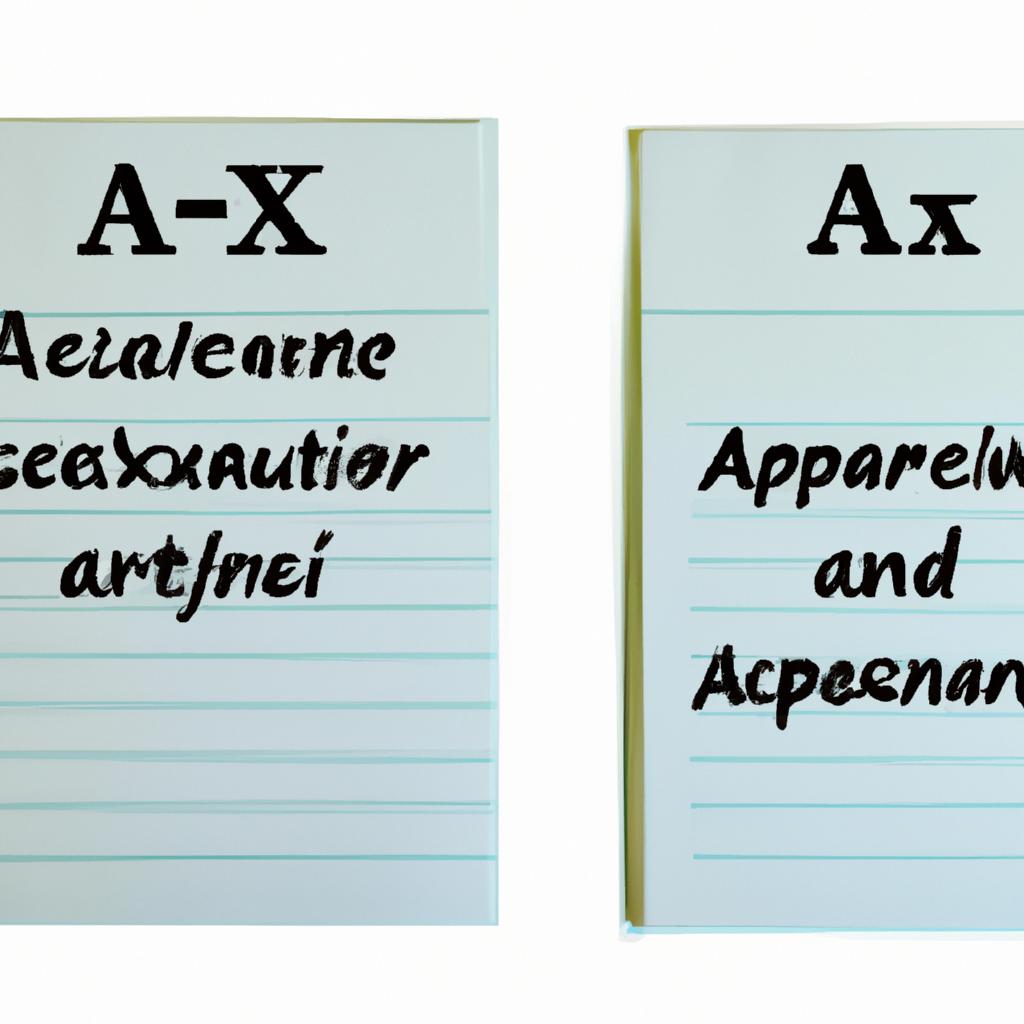In the intricate landscape of estate administration, the role of an administratrix is of paramount importance. Defined as a woman appointed to manage the affairs of an estate in the absence of a valid will, the administratrix wields significant responsibilities and duties in ensuring the efficient distribution of assets and settlement of debts. As seasoned practitioners in the field of estate law, the Morgan Legal Group stands ready to illuminate the complexities surrounding the administratrix of an estate, offering clarity and guidance for those navigating this intricate legal terrain.
Responsibilities of an Administratrix in Managing an Estate
An administratrix of an estate is tasked with a wide array of responsibilities in managing the affairs of a deceased individual. One of the primary duties of an administratrix is to locate and safeguard the assets of the estate. This includes gathering all relevant financial information, such as bank accounts, investments, real estate, and personal property. It is crucial for an administratrix to maintain accurate records of all assets to ensure they are properly distributed to the beneficiaries.
In addition to asset management, an administratrix is responsible for paying off any outstanding debts and taxes of the estate. This involves identifying creditors, notifying them of the individual’s passing, and settling any financial obligations. Furthermore, the administratrix must adhere to the probate laws of the state in which the estate is being administered, ensuring that all legal requirements are met throughout the process. It is imperative for an administratrix to work diligently and ethically to fulfill their duties and protect the interests of the estate and its beneficiaries.
| Responsibilities | Details |
|---|---|
| Asset Management | Gather financial information, safeguard assets |
| Debt and Tax Payment | Identify creditors, settle financial obligations |

Key Differences Between an Administratrix and an Executor
In the realm of estate administration, it is imperative to distinguish between the roles of an administratrix and an executor. While both positions involve managing and distributing a deceased individual’s assets, there are key differences in their responsibilities and authority.
<p>One crucial dissimilarity between an administratrix and an executor lies in their appointment process. An administratrix is typically appointed by the court when a deceased person has left no valid will (intestate). On the other hand, an executor is named in the deceased's will and is tasked with carrying out the decedent's final wishes. The distinction in appointment method significantly impacts the scope of authority and decision-making power each role possesses.</p>

Challenges Faced by Administratrices in Estate Administration
In the realm of estate administration, administratrices face numerous challenges that require careful navigation and expert guidance. One of the primary challenges faced by administratrices is the complex legal and financial landscape surrounding estate matters. From probate court proceedings to asset distribution, administratrices must be well-versed in the intricacies of estate planning and administration to effectively fulfill their duties.
- Lack of experience: Many administratrices may lack prior experience in estate administration, making the process overwhelming and daunting.
- Family disputes: Administratrices often must navigate family dynamics and disputes that can arise during the estate administration process, adding an additional layer of complexity to their responsibilities.
- Legal requirements: Understanding and complying with the legal requirements and deadlines associated with estate administration can be challenging and requires careful attention to detail.
| Challenge | Solution |
|---|---|
| Lack of experience | Seek guidance from estate planning professionals |
| Family disputes | Mediation and communication with family members |
| Legal requirements | Consult with attorneys specializing in estate law |
Overall, administratrices must be prepared to overcome these challenges through a combination of knowledge, skill, and strategic planning. By seeking the support and guidance of experienced estate planning professionals, administratrices can navigate the complexities of estate administration with confidence and ensure that the wishes of the deceased are carried out in a timely and efficient manner.

Important Considerations when Choosing an Administratrix for an Estate
When selecting an administratrix for an estate, there are several crucial considerations that must be taken into account to ensure the efficient administration of the estate and the smooth distribution of assets to beneficiaries. It is important to choose a trustworthy individual who is capable of handling the responsibilities that come with being an administratrix.
<p>Some important factors to consider when choosing an administratrix for an estate include:</p>
<ul>
<li><strong>Trustworthiness:</strong> The administratrix should be someone who is honest, reliable, and has the best interests of the estate and its beneficiaries in mind.</li>
<li><strong>Organizational skills:</strong> The administratrix should be organized and detail-oriented, as there are many tasks involved in administering an estate.</li>
<li><strong>Communication skills:</strong> The administratrix should be able to communicate effectively with the estate's beneficiaries, creditors, and other parties involved in the probate process.</li>
<li><strong>Knowledge of estate laws:</strong> It is important that the administratrix has a good understanding of estate laws and procedures to ensure that the estate is administered correctly.</li>
</ul>
Q&A
Q: What is an administratrix of an estate?
A: An administratrix of an estate is a person appointed by the court to manage and distribute the assets of a deceased person’s estate when there is no will or when the named executor is unable or unwilling to fulfill their duties.
Q: What are the responsibilities of an administratrix?
A: The administratrix is responsible for gathering and inventorying the deceased person’s assets, paying off debts and taxes, and distributing the remaining assets to the rightful heirs according to state laws.
Q: How is an administratrix appointed?
A: The court typically appoints an administratrix based on the state’s laws of intestate succession, which dictate how a deceased person’s assets are distributed in the absence of a will.
Q: Can anyone be appointed as an administratrix?
A: In most cases, a close family member such as a spouse, parent, or child of the deceased person is appointed as an administratrix. However, if no family member is willing or able to serve, the court may appoint a neutral third party such as a bank or lawyer.
Q: Are administratrices compensated for their services?
A: In many cases, administratrices are entitled to a reasonable fee for their services, which is typically paid from the deceased person’s estate. However, the exact compensation varies depending on the state’s laws and the complexity of the estate.
To Conclude
In conclusion, understanding the role of an administratrix of an estate is crucial for ensuring the smooth settlement of a deceased individual’s affairs. By taking on this responsibility, one is entrusted with managing and distributing the assets of the deceased in accordance with the law. This position requires thorough knowledge of legal processes and a strong sense of duty to uphold the wishes of the deceased. As we navigate the complexities of estate administration, let us remember the importance of honoring and preserving the legacies left behind. Ultimately, the role of an administratrix serves as a vital link between the past and the future, ensuring that the final wishes of the departed are carried out with care and diligence.

